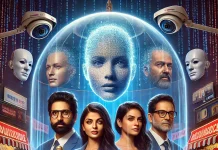Introduction:
The Additional District Judge, Ludhiana had passed an order dated 23rd November,2023, whereby Dreamline Reality Movies (“Respondents / Dreamline”) were granted an order to restrain Super Cassette Industries Private Limited (“Appellant / T Series”) from producing, telecasting, selling or releasing the movie “Dear Jassi” until the final determination of the case. Read order here.
However, the Punjab and Haryana High Court has recently on 22nd February, 2024,[i] set aside the order by the District Judge and ruled that the facts and events from the life of a person cannot be a subject matter of copyright, unless the person claiming copyright violation has created a work that exists depicting such life story.
The Story of Jaswinder Kaur:
In December 1994, Jaswinder Kaur (a.k.a. Jassi) who was the daughter of a multi-billionaire blueberry orchards owner in British Columbia, Canada, had met Mithu (a.k.a. Sukhwinder Singh) in Punjab, who was a kabaddi player from a poor Jat Sikh family, and they had both entered into a secret marriage in Amritsar in March 1999. However, Jaswinder Kaur’s return to Canada revealed their union, prompting false accusations against Sukhwinder Singh for kidnapping and forced marriage in February 2000. Jaswinder Kaur lost her life by murder, while Sukhwinder Singh was hospitalized, after getting kidnapped while both her and her husband while riding on a scooter in June 2000. Legal battles ensued, with seven individuals sentenced in 2005.[ii]
( P.S. I hope I don’t get a life rights claim by quoting this story here )
Facts and Arguments:
A brief factual background of this suit is that T Series bought rights over a book (seems to be the book titled “Justice for Jassi”), which covered the life of Jaswinder Singh, written by Fabian Dawson, in order to make a film adaptation. T-Series also mentioned that the production of the film titled “Dear Jassi” was already completed as of 16th March, 2023.
However, Dreamline had claimed that they entered into an agreement for purchasing the life story rights of Sukhwinder Singh, who was the husband of Jaswinder Kaur. As the life story of Sukhwinder Singh is also involved in the story of Jaswinder Kaur, the movie could not have been made without Sukhwinder Singh’s permission. This permission had been purchased by Dreamline. Therefore, Dreamline claimed to have a copyright over the life story of Sukhwinder Singh.
In this background Dreamline filed an application of injunction against T Series from exhibiting the film “Dear Jassi”, which application was allowed by the district court, and aggrieved by such order, T Series filed an appeal in the present case.
Judgement:
Observations on Copyright
The Court observed that in order to claim copyright over something there has to be an existing work. Mere facts or ideas without involvement of talent, intelligence, or efforts in converting the same into a work cannot be considered a ‘work’ under the Copyright Act, 1957, on which copyright can be asserted.
The Court held that even though Dreamline claims there was assignment of life story by Sukhwinder Singh, it had no legal effect, since there was no right to be assigned in the first place, as no work existing by Sukhwinder Singh on his own life story.[iii] On the other hand, T-Series has a right to make the film on his life story as it purchased right to make a film on the book created by Mr. Fabian Dawson wherein Sukhwinder Singh’s life story was already included.
It was also held that the said life story was already a part of court records due to the extradition proceedings held in Canada and subsequently the trial by Indian Courts. It was also a part of public domain due to various media publications, social media publications, and five films already made on the subject. It was held that “Even the statutory provisions contained in the Copyright Act exclude the material in public domain from the restrictions of Copyright Act.”[iv]
Another aspect considered by the Court was that Dreamline wanted to restrain T-Series from making or exhibiting a film on the life story of Jaswinder Kaur, who is deceased and has not left any published / unpublished work over which legal heirs could claim copyright. It was argued that once the information regarding the love story is in public domain, even if the person is alive he cannot claim copyright over the same The Court upheld the applicability of Krishna Kishore Singh v. Sarla A. Saraogi,[v] and Ramgopal Varma v. Perumalla Amrutha.[vi]It was concluded that the interim relief granted by the trial court was claimed only as the final relief by Dreamline and therefore, such order does stand the test of legal scrutiny. [vii]
Observations on Privacy Rights
Rejecting the reliance upon right to privacy of Sukhwinder Singh by Dreamline, the court said that right to privacy is not absolute, as also held in K.S Puttuswamy v. Union of India.[viii] Therefore, merely on the basis of right to privacy Dreamline cannot claim any copyright. Copyright can be claimed only “within the four-walls of the statutory provisions contained in the said (Copyright) Act.”
Further, the Court made observations that the relevance on para 625 of the Puttuswamy judgement by Dreamline (the para stated that each individual may be permitted to prevent others from using his image, name and other aspects of his personal life and identity for commercial purposes done without his consent) contained the view of only one Judge from the Constitutional Bench, and therefore was only advisory in nature and not the law laid down by the Supreme Court.
The Court also further held that the moment a person comes out of his own unique personal sphere and indulges in social sphere and social intercourse, then such part of his individuality which relates to interpersonal relations, social choices, or social consequences, would not be encompassed unconditionally in his right to privacy.
Observations on Personality Rights
On rejecting the claim by Dreamline that they had purchased Sukhwinder Singh’s “right to commercially exploit his privacy”, the Court observed that this argument takes away the case beyond the submissions of Dreamline, and the order of the trial court, which was entirely based on the assumption that there was infringement of copyright.
It was further held, arguably, Sukhwinder Singh may have had right to claim damages or sell his privacy for commercial exploitation, but there are defined limits even for such action. Such ‘celebrity rights’ or ‘publicity rights’ can be claimed only by those persons who have acquired status of celebrity and distinct identity having ‘commercial goodwill’ which can be used as saleable commodity. Sukhwinder Singh neither claimed celebrity status nor was it asserted by Dreamline that he was a celebrity, and therefore he cannot claim to have any publicity rights.[ix]
Final Order
For these reasons the Court found that Dreamline did not have any prima facie (on first impression) case in its favor. The release of the film would only result in profits. Therefore, it cannot be said that Dreamline would suffer irreparable loss if T-Series was stopped from releasing the film. Accordingly the appeal was allowed and the District Court order was set aside.
Conclusion & Thoughts:
Dreamline’s claim of owning the copyright to a life story doesn’t hold up and does not seem to be well considered. When there’s no previous work, the protection usually comes from personality and privacy rights, and the obligation of confidence, outside the realm of statutory copyright law recognized in India. These rights may stop others from using life story of a person commercially so far as it falls within the contours of such rights, as is also rightly clarified herein by the Court.
Note: A similar case wherein an injunction was granted against use of life story of an individual is Super Cassettes Industries Pvt. Ltd. (T-Series) & Anr. v. Nandi Chinni Kumar & Ors.,[x] wherein the Telangana High Court passed an interim injunction restraining the release of the movie ‘Jhund’ due to potential copyright and personality rights infringement, arising due to the use of real-life events and life story of an individual who was once a criminal but later became captain of a football team.
It also seems that Dreamline’s arguments suffered various lapses as their pleadings were limited to remedies arising from infringement of copyright, while the case was, arguably, falling within the domain of privacy and personality rights infringement, the name and likeness of Sukhwinder being used in the film.
Additionally, the Court commented on the reliance of paragraph 625 from the Puttuswamy judgment by Dreamline. It was noted that this view was expressed by only one Judge on the Constitutional Bench of the Supreme Court, making it advisory rather than a definitive law set. It seems that delving into this aspect was uncalled for and not required, as it was already established that the life story here was falling in the public domain.
Note: Once the case falls within the public domain, any question of infringement of rights in the life story does not arise as clarified in R. Rajagopal v. State of T.N. (1994),[xi] wherein it was held, no right to publish life story exists, as long as it is from public records, if exercised without the consent of the person concerned. Therefore, no concern of right to privacy arises, presumably because the information is no more private to the individual, as was the case here, because the life story of Jaswinder Kaur is already covered by various court cases and media publications.
An important observation by the Court is that right to privacy isn’t always absolute. When someone exposes themselves in social settings, they may lose protection of this right. Also the clarification that personality rights are mostly available to celebrities. This may aid in preventing unnecessary lawsuits against filmmakers and artists who depict individuals in social settings in commercial films. It seems like a welcome observation that could help protect creators from frivolous and costly lawsuits in the future.
End notes
[i] T Series v. Dreamline Reality Movies, FAO No. 6386 of 2023.
[ii] https://www.hindustantimes.com/punjab/when-jassi-met-mithu-and-love-met-honour/story-SJTNaYvsAmieRqkEJwnDPJ.html
[iii] Para 17.
[iv] Para 13.
[v] 2021 SCC OnLine Del 3146
[vi] 2020 SCC OnLine TS 3018
[vii] Para 13.
[viii] (2017) 10 SCC 1
[ix] Para 19
[x] Civil Miscellaneous Appeal Nos.355, 356, 357 and 358 of 2020
[xi] 1995 AIR 264, 1994 SCC (6) 632
Image created on Dall-e













Comments are closed.